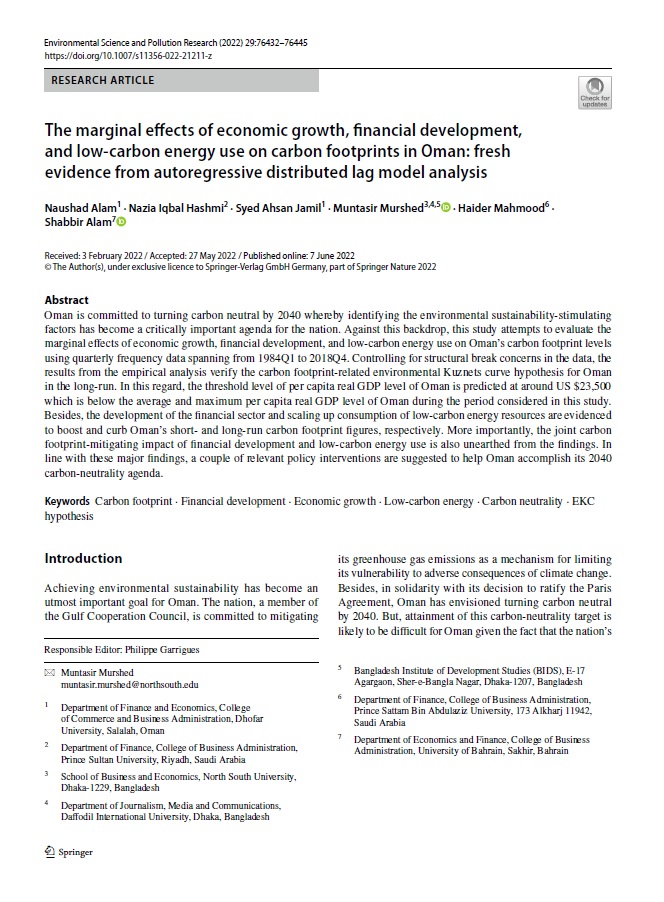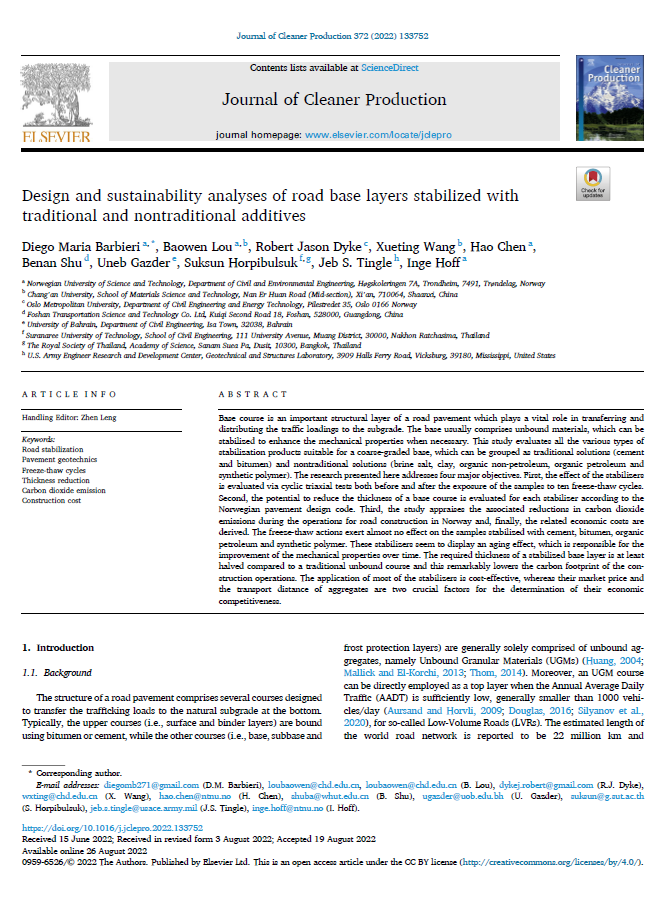Document
Identifier
https://digitalrepository.uob.edu.bh/id/06e405db-20e4-44aa-8e7f-816fc31465ac
Pathways to Argentina’s 2050 carbon‑neutrality agenda: the roles of renewable energy transition and trade globalization
Linked Agent
Country of Publication
Kingdom of Bahrain
Place Published
Sakhir . Bahrain
Publisher
University of Bahrain
Date Issued
2022
Language
English
Subject
English Abstract
Abstract:
The government of Argentina has recently declared its objective of turning the nation carbon–neutral by 2050.
Thus, it is essential to identify the relevant factors which can facilitate the attainment of this environmental development target.
Against this backdrop, this study aims to evaluate the impacts of renewable electricity output, trade globalization, economic growth,
fnancial development, urbanization, and technological innovation on sectoral carbon dioxide emissions in Argentina during the 1971–2014 period.
The fndings, overall, suggest that enhancing renewable electricity output share in the total electricity output fgure of the nation helps to curb carbon dioxide emissions generated from Argentina’s energy, manufacturing and industry, residential and commercial buildings, and transportation sectors.
Contrarily, greater trade globalization is evidenced to boost carbon dioxide emissions in almost all the aforementioned economic sectors. Besides, the fndings also validate the existence of the carbon dioxide emission-induced environmental Kuznets curve hypothesis for all four sectors.
In addition, fnancial development and urbanization are also evidenced to exert carbon dioxide emission-stimulating impacts, while technological innovation is witnessed to be necessary for curbing sector-based carbon dioxide emissions in Argentina.
Accordingly, to decarbonize the economy, this study recommends the government of Argentina to adopt necessary policies for fostering renewable energy transition within the electricity sector, greening the trade globalization strategies, achieving environmentally sustainable economic growth, developing the fnancial sector by introducing green fnancial schemes, planning sustainable urbanization, and fnancing technological development-oriented projects.
Title of Periodical
Environmental Science and Pollution Research
Member of
Category
Article



